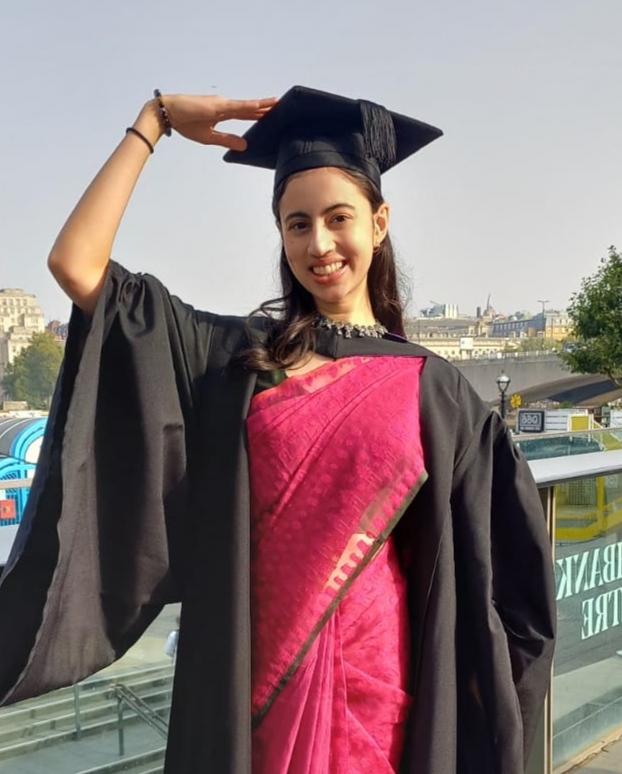Easha Doulagar - MRes Clinical Research (Human Nutrition)
 What attracted you to the MRes in Clinical Research?
What attracted you to the MRes in Clinical Research?
Coming from a background in Medical Sciences and an aptitude and interest in disease research, I was inclined to pursue a more hands-on research intensive master's degree where I could build the skills needed to pursue a career in research involving human participants and human-derived experimental models. The MRes in Clinical Research seemed like the ideal programme for this. I was also keen to further explore my interests in the gut microbiota-host interactions space and was drawn towards some of the research themes that were advertised within the programme at the time.
What specific area did you focus on for your project?
My project was around investigating the effects of gut microbiota metabolites, specifically indoles, on gene expression of enteroendocrine cells (EECs) and EEC- produced hormones GLP-1 and PYY which are significant in a range of systemic and metabolic diseases. Our experimental model was intestinal epithelial organoids which were established directly from human and murine intestinal tissue samples.
What aspects of this programme did you find the most beneficial?
It would be the balance between clinical research training and laboratory training. I had the opportunity to delve deeper into the practical, ethical and governance based aspects of carrying out clinical research involving human participants and human-derived experimental models but I also gained exposure to a range of molecular biology and biochemistry techniques including organoid culture, RNA/DNA isolation from human tissue, qPCR, immunohistochemistry and microscopy.
What did you enjoy most about studying at Imperial and in the Faculty of Medicine?
I really enjoyed interacting and working alongside students from diverse backgrounds. Everyone in the faculty is very friendly and approachable, which makes it an excellent environment to learn!
How do you think the course will impact your future career?
I believe that having the opportunity to undertake research within active research groups for the duration of the MRes really prepares you for a career in academic research in every sense- for me I really value the softer skills, like resilience and adaptability, that I have built during my time as an MRes student.
What are your plans now you have completed the MRes?
I am currently working towards exploring options for PhD research within my areas of interest.
What advice would you give those considering the MRes in Clinical Research?
I would definitely say to use this as an opportunity to expand and develop your research-based skillset. Get into your research project with an open mindset and be prepared to learn from all the challenges that come with working in clinical research!
Find out more and apply to study Imperial's MRes Clinical Research.